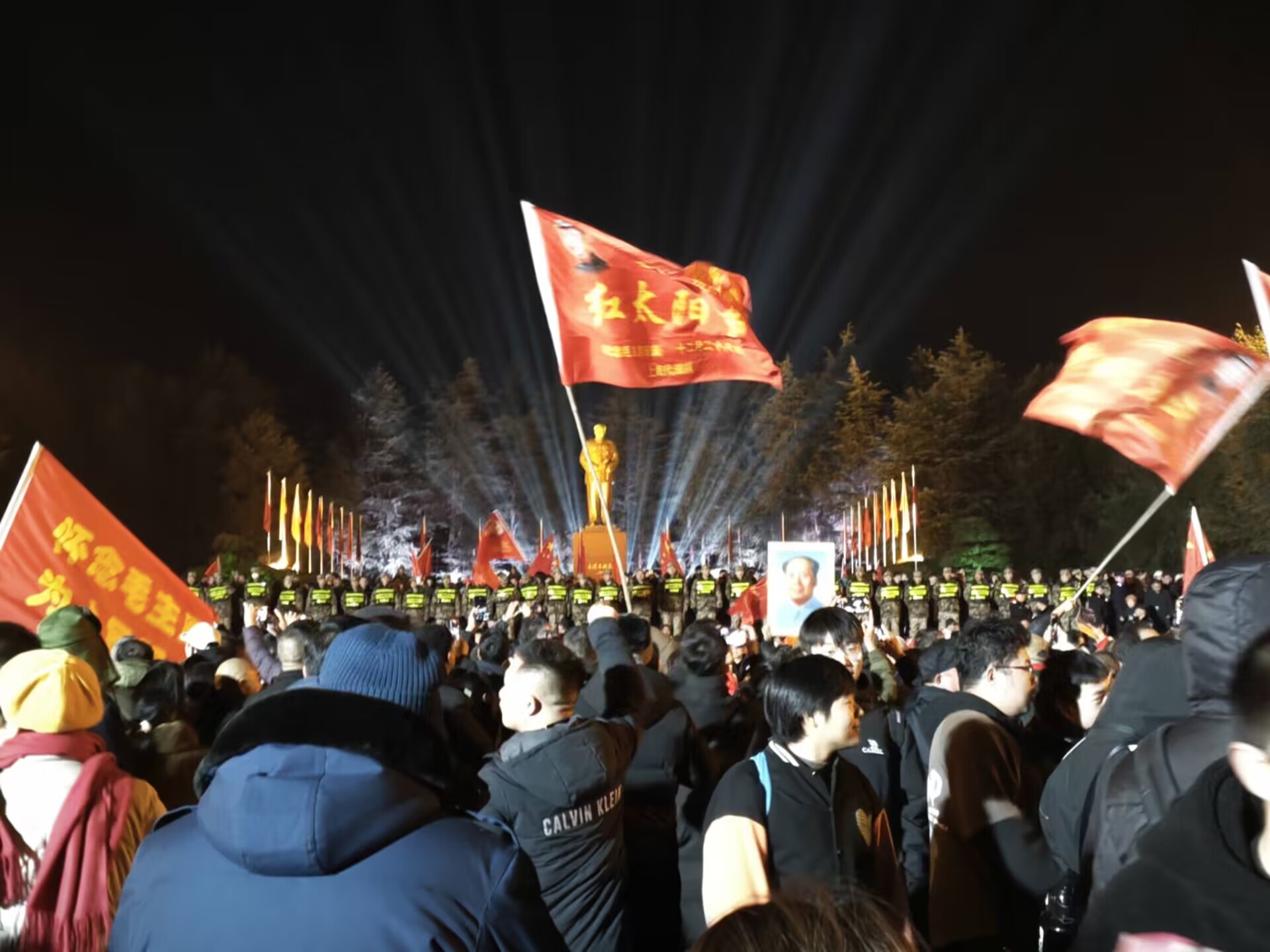China marks 130 years since Mao's birth to celebrate Xi Jinping
China’s top communist leaders paid tribute to Mao. Celebrations included a large gathering in the Great Helmsman’s birthplace. An editorial in a magazine centred on reforms and openness is removed. Chinese authorities continue to be wary of Mao’s cult of the personality, which could lead to criticism of current leaders.
Beijing (AsiaNews) – Chinese leader Xi Jinping visited Mao Zedong's mausoleum in the centre of Tiananmen Square to commemorate the 130th anniversary of the Great Helmsman's birth. Along with Xi, six other members of the Politburo, the highest decision-making body of the Communist Party of China (CPC), also entered the building that houses Mao's body.
Events in his honour were held in various parts of the country starting with his hometown of Shaoshan, where a mass rally was held.
Born on 26 December 1893, Mao remains an important figure in Chinese society even after his death more than 40 years ago. CPC tradition requires that the commemoration usually be held every 10 years.
After visiting the mausoleum and paying tribute to the great leaders, Xi and senior party officials entered the Great Hall of the People to attend a symposium.
In his address, China’s current strongman talked about Mao's life and stressed the importance of advancing the cause he pioneered.
Xi also emphasised the central government's rule over Hong Kong, China’s unification, and opposition to Taiwanese independence.
Mao's Mausoleum was closed to visitors on Sunday (24 December), fuelling speculation that Xi Jinping planned to visit the site as part of anniversary celebrations.
Qiushi, the CPC’s main theoretical journal, praised Mao's legacy in an article published in December; it also hailed Xi Jinping, stressing how fortunate both party and state were for his leadership.
Since Xi came to power, the authorities' attitude toward Mao has undergone a certain change. While acknowledging that the history prior to China’s reform and opening cannot be denied, Mao is not blamed for the Cultural Revolution in history books.
Although his father, Xi Zhongxun, was persecuted under Mao, Xi also plans to revive some of Mao’s political and economic practices, like scrapping term limits for the presidency, and emphasising state control over the economy.
For its part, online magazine Caixin published an editorial on Christmas Day centred on Deng Xiaoping. It looked at China's history as the country shifted from the Cultural Revolution to economic growth. However, the piece was removed a few hours after publication.
In Mao's hometown of Shaoshan, a huge crowd comprised of locals and people from other parts of China gathered for a midnight commemoration.
Online videos show people calling for a return to socialism in speeches, chants, and slogans from the time of the Cultural Revolution.
China's economy boomed after Mao's death, but social discontent has grown over the widening gap between rich and poor.
In recent years, amid escalating social conflicts, more and more young people have been joining the ranks of Mao's followers as a result of high levels of unemployment, poor welfare programmes, and a lack of workers’ protection.
At the same time, the authorities are wary of Mao’s cult of personality, especially in relation to activities by young Maoists. This had included cracking down without hesitation against their protests and support for workers' rights movements.
22/12/2003







.png)










